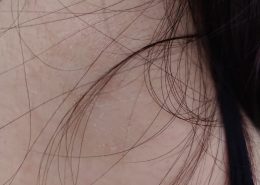My dark circle and eyebags worsened after a period of not getting enough sleep and have not improved despite me trying to fix my sleep schedule for the past 1 month. I wonder if I should consider doing some procedure ...
SQS 점수는 일반적으로 특정 건강 상태나 질병의 위험도를 평가하는 데 사용되는 점수 체계입니다. 그러나 SQS라는 용어는 다양한 맥락에서 사용될 수 있으며, 특정 질환이나 건강 상태에 따라 점수의 의미가 달라질 수 있습니다. 따라서 정확한 SQS 점수 기준표를 제공하기 위해서는 어떤 질환이나 건강 상태에 대한 SQS 점수를 문의하시는지 구체적으로 알려주셔야 합니다. 일반적으로 점수 체계는 다음과 같은 범주로 나뉠 수 있습니다: 1. 정상군: 이 범주는 일반적으로 위험이 낮거나 없는 상태를 나타냅니다. 점수는 보통 낮은 범위에 속합Read more
SQS 점수는 일반적으로 특정 건강 상태나 질병의 위험도를 평가하는 데 사용되는 점수 체계입니다. 그러나 SQS라는 용어는 다양한 맥락에서 사용될 수 있으며, 특정 질환이나 건강 상태에 따라 점수의 의미가 달라질 수 있습니다. 따라서 정확한 SQS 점수 기준표를 제공하기 위해서는 어떤 질환이나 건강 상태에 대한 SQS 점수를 문의하시는지 구체적으로 알려주셔야 합니다.
일반적으로 점수 체계는 다음과 같은 범주로 나뉠 수 있습니다:
1. 정상군: 이 범주는 일반적으로 위험이 낮거나 없는 상태를 나타냅니다. 점수는 보통 낮은 범위에 속합니다.
2. 중간 위험군: 이 범주는 약간의 위험이 존재할 수 있음을 나타내며, 점수는 중간 범위에 속합니다.
3. 고위험군: 이 범주는 높은 위험을 나타내며, 점수는 높은 범위에 속합니다.
각 범주의 정확한 점수 범위는 평가하는 질환이나 건강 상태에 따라 다르므로, 관련된 구체적인 지침이나 연구 자료를 참조해야 합니다. 특정 질환에 대한 SQS 점수 기준이 궁금하신 경우, 해당 질환의 최신 가이드라인이나 연구 자료를 확인하시기 바랍니다. 또한, 지역별로 사용되는 점수 체계가 다를 수 있으므로, 지역이나 국가의 가이드라인을 참조하는 것이 중요합니다.
See less


It sounds like you're experiencing persistent under-eye circles and bags, which can be frustrating, especially when they affect your appearance and how others perceive your level of rest. Here’s a structured approach to consider: Understanding the Cause 1. Sleep Insufficiency: Lack of restful sleepRead more
It sounds like you’re experiencing persistent under-eye circles and bags, which can be frustrating, especially when they affect your appearance and how others perceive your level of rest. Here’s a structured approach to consider:
Understanding the Cause
1. Sleep Insufficiency: Lack of restful sleep can exacerbate under-eye circles and bags due to fluid retention and poor circulation. Although you have been working on improving your sleep schedule, it may take more time for visible improvements.
2. Other Contributing Factors: Consider other potential causes such as genetics, allergies, dehydration, or lifestyle factors (e.g., diet, stress).
Non-Invasive Approaches
1. Continued Sleep Hygiene: Maintain good sleep hygiene practices. Ensure consistent sleep patterns and a restful environment.
2. Hydration and Nutrition: Ensure adequate hydration and a balanced diet rich in vitamins and antioxidants, which can support skin health.
3. Topical Treatments: Use creams with ingredients like caffeine, vitamin C, or hyaluronic acid, which may help reduce puffiness and improve skin tone.
4. Cold Compresses: Applying cold compresses can temporarily reduce puffiness by constricting blood vessels.
Procedural Options
1. Dermal Fillers: Consider consulting a dermatologist or plastic surgeon about dermal fillers, which can help reduce the appearance of under-eye hollows.
2. Laser Treatments: Some lasers can improve skin texture and pigmentation. However, consult a specialist to discuss potential benefits and risks.
3. Chemical Peels: Mild chemical peels can improve pigmentation issues but should be done under professional guidance.
Considerations Before Procedures
– Consultation: Before deciding on any procedure, consult with a dermatologist or cosmetic specialist to discuss your concerns, expectations, and the potential risks and benefits.
– Realistic Expectations: Understand that results can vary, and multiple sessions may be required for optimal outcomes.
– Cost and Recovery: Consider the cost, recovery time, and any potential side effects associated with the procedures.
Psychological and Social Aspects
– Self-Perception: Reflect on how much the appearance of under-eye circles affects your self-esteem and social interactions.
– Support: Engage with supportive friends or a counselor if comments from others are impacting your mental well-being.
Final Thoughts
While procedures can offer improvements, they should be considered after exploring non-invasive options and understanding the underlying causes. Always prioritize professional advice tailored to your specific needs and circumstances.
See less